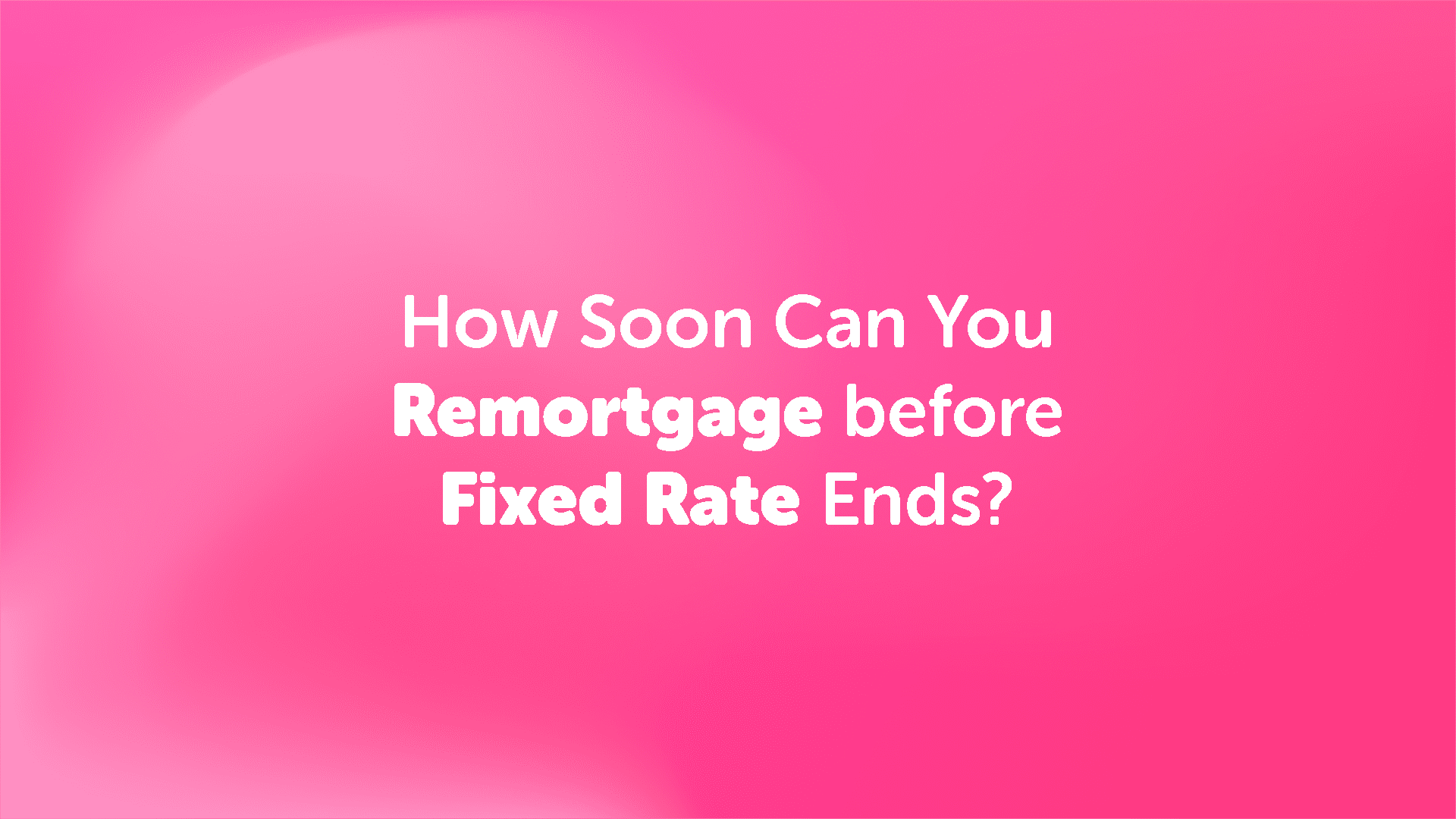When you take out a remortgage in Hull, you are essentially taking out a new mortgage on the same property, usually with a different mortgage lender or a different deal from your current mortgage lender.
This can be a way to lower your monthly mortgage payments, access additional funds, or switch to a more suitable mortgage deal.
To remortgage in Hull, you will typically need to go through an application process with your chosen mortgage lender, provide documentation and information about your financial situation, and have a valuation carried out on your property.
Taking out remortgage advice in Hull can help with this. If your application is approved, you can then complete your remortgage in Hull and start making repayments on the new mortgage deal.
It’s important to note that remortgaging in Hull may incur additional fees, such as arrangement fees and early repayment charges, so it’s important to carefully consider whether it’s the right option for your personal circumstances.
Is remortgaging in Hull right for me?
Determining whether taking out a remortgage in Hull is a suitable option for you, will be dependant on your individual goals and circumstances.
Whilst many homeowners consider remortgaging in Hull to improve their quality of life or take advantage of their property, it’s not necessarily the best choice for everyone.
Here at Hullmoneyman, our dedicated team of remortgage advisors in Hull can help you assess your situation, evaluate your objectives, and determine whether taking out a remortgage is the right option for you.
We pride ourselves on offering a transparent service, and if remortgaging is not the right option for you, our dedicated mortgage advisors in Hull will inform you accordingly and suggest alternative solutions, if they are available.
Types of Mortgages Available When You Remortgage in Hull
As has been looked at above, taking out a remortgage in Hull will just be a new mortgage once your initial deal period has ended, replacing the previous deal. There are a wide variety of reasons as to why someone may look to do this.
You may still be curious of the different types of mortgage that could be available to a homeowner who is looking to remortgage in Hull, such as yourself. Below are the most popular of these options.
Fixed-Rate Mortgage
A fixed-rate mortgage is a type of mortgage where the interest rate remains constant for a specified period, usually between 2 to 5 years.
It provides homeowners with the assurance that their mortgage payments will remain the same, regardless of any changes in interest rates during that fixed period.
While circumstances can change during the mortgage term, such as a change in income or a need for a larger or smaller property, being locked into a long-term fixed-rate mortgage can be costly, as it usually involves paying an early repayment charge to exit the mortgage before the end of the fixed term.
For this reason, most homeowners opt for 2 to 5 year fixed-rate mortgages, as they provide stability and consistency for a reasonable length of time, while also allowing the flexibility to make changes if needed.
Although interest rate decreases are unlikely, a fixed-rate mortgage can provide peace of mind in a potentially volatile market.
Tracker Mortgage
A tracker mortgage is a flexible type of mortgage that follows the Bank of England base rate. While the interest rate on a tracker mortgage will typically be a few percentage points above the base rate, it will move in line with any changes to the base rate.
For example, if your mortgage is at a 2% interest rate and the base rate is 0.75%, you will pay 2.75% on interest. If the base rate increases to 1%, your interest rate would increase to 3%.
Tracker mortgages are usually fixed for a set period, after which they transition to the mortgage lender’s standard variable rate. While this gives mortgage lenders the freedom to adjust your interest rate as they see fit, some tracker mortgages come with caps to limit the maximum interest rate you’ll pay.
One advantage of a tracker mortgage is that you’ll pay less interest when the base rate is low. Whilst this is a positive, there are some downsides to consider. For instance, if you decide that a tracker mortgage isn’t for you, you may face early repayment charges.
Additionally, when the Bank of England base rate goes up, your monthly payments will increase. Some trackers come with a “collar” which means that even if the base rate drops, your interest rate can only fall so far.
Discounted Variable Rate Mortgage
At the end of your mortgage term, you may have the option to switch to a discounted variable rate mortgage. Mortgage lenders offer their own variable rates, such as a standard variable rate, which is what borrowers move onto once their fixed period ends, if they don’t remortgage in Hull.
The discounted variable rate is typically set at a percentage below the mortgage lender’s standard variable rate. For instance, if the SVR is at 3.99% and your mortgage has a discount of 1%, your interest rate would be 2.99%.
As with tracker mortgages, your interest rate will change in line with any changes in the mortgage lender’s standard variable rate. By opting for a discounted variable rate mortgage, you will benefit from a lower interest rate than the mortgage lenders SVR.
In addition, if the mortgage lender lowers its SVR in response to a Bank of England change, you may enjoy an even lower interest rate. Compared to other mortgage types, early repayment charges tend to be lower with discounted variable rates.
Remortgaging in Hull When Your House Value Has Increased
Purchasing a property can be considered an investment, regardless of whether you intend to reside in it or rent it out as a buy to let/let to buy property. The expectation is that the value of the home will appreciate over time.
Besides being the most valuable asset you’ll own, it provides shelter for you and your family. In fact, future generations may benefit from the property ownership if you decide to pass it down.
The property market is unpredictable and house prices may fluctuate, at times increasing or decreasing.
Interestingly, when property prices are high, mortgage rates may be more favorable. Thus, it may be advantageous to explore your remortgage options to take advantage of the available deals.
You can find out more about this topic in our article “Remortgaging in Hull When Your House Value Has Increased“.
What is a product transfer in Hull?
As you head towards the end point of your current mortgage deal, whether it’s a fixed or introductory period, a mortgage lender may offer you a chance to take out a new mortgage deal but stay with them. This type of process is known as a product transfer.
Although remortgages in Hull and seeking remortgage advice in Hull are often discussed as the more popular options for homeowners to take, product transfers in Hull are arguably just as sought after.
Nevertheless, you are not obligated to accept the deal offered by your mortgage lender, as remortgaging in Hull enables you to explore potentially better deals with other mortgage lenders, which a product transfer may not offer.
In any case, it is always beneficial to seek expert mortgage advice in Hull beforehand.
To understand how product transfers work, please feel free to take a look at our article “Should I Take My Mortgage Lenders New Deal? Product Transfers vs Remortgages in Hull“.
Popular Reasons for you to Remortgage in Hull
Remortgage For Better Interest Rates
Typically, your initial mortgage deal will have a duration of 2-5 years and offer low fixed or discounted rates. In some cases, you may have a tracker mortgage, which follows the Bank of England’s base rate.
However, when your term ends, you will likely be shifted to the mortgage lender’s Standard Variable Rate (SVR). In essence, the SVR is a mortgage with an interest rate that may change based on the mortgage lender’s discretion, unlike a tracker mortgage that follows the Bank of England’s base rate.
Consequently, SVRs can be the most expensive option, leading many to explore remortgaging for better rates, potentially reducing your monthly mortgage repayments.
It’s always recommended to seek expert remortgage advice in Hull before making any decisions.
Remortgage For Home Improvements
If you have been living in your home for a number of years now or your circumstances have changed, you may find that you need more living space, a larger kitchen, or a home office.
Instead of relocating to a larger property, you could consider releasing equity through a remortgage in Hull to cover the costs.
Although the idea of obtaining planning permission and managing your own home improvement project may seem intimidating, some believe it is less stressful and more rewarding than the process of purchasing a new home, selling your current one, and moving your belongings.
In the long term, creating more space and maintaining the property could potentially increase its value. This is beneficial if you ever decide to sell or rent out your property.
Read more about one potential option for a remortgage for home improvements in our article “Remortgage for a Home Extension“.
Remortgage for Changes to Your Term
Remortgaging in Hull can also be a smart move if you need to make changes to your mortgage term. You might opt for a shorter term, which means you’ll pay off your mortgage sooner, although your monthly payments will be higher.
On the other hand, a longer term will result in lower payments over time. Some homeowners may prefer a more flexible mortgage term, allowing them to overpay and pay off their mortgage faster. It also means that they can take the same mortgage and rates to another property if they move in the future.
That being said, flexible mortgages usually come in the form of a tracker mortgage that follows the Bank of England’s base rate. As a result, your payments may fluctuate based on interest rates, which may not be ideal for everyone.
Remortgage to Release Equity
Property equity represents the difference between what you still owe on your mortgage and the current value of your home.
This equity can be leveraged to cover various expenses, from home improvements to long-term care costs, from supplementing your income to going on a holiday or perhaps something else entirely.
Buy to Let landlords in Hull can also use remortgaging in Hull to release equity and fund their deposit for purchasing additional properties to expand their portfolio.
Remortgage to Consolidate Debt
One of the reasons people may choose to release equity from their property is to consolidate their debts.
Whilst this is the case, it’s important to note that the amount you can borrow is based not only on the amount you owe and the value of your property, but also on your credit rating, which may limit the amount you can borrow.
In order to pay off your mortgage and your debts, you may need to borrow more than your outstanding mortgage amount, resulting in higher monthly repayments. Although it may not be an ideal situation, it’s good to know that you have options available to you in case of financial hardship.
Even if you have a poor credit rating, there are still options available to you. That being said, these options may not be easy and require the assistance of a specialist remortgage advisor in Hull before moving forward.
Keep in mind that there is no guarantee of success, but it’s worth exploring your options if you’re struggling with debt.
You should think carefully before securing other debts against your home. By adding your unsecured debts to your mortgage, which is secured on your home, you are potentially putting your home at risk if you cannot make the required repayments.
Although the total monthly cost of servicing your debt may have reduced, the total cost of repayment may still have risen as the term of your mortgage is longer than it may have taken to repay the debts originally.
When is the best time to remortgage in Hull?
We suggest that you begin exploring your remortgage alternatives about 3 to 6 months before the conclusion of your initial mortgage offer.
This will provide you with sufficient time to consult with a specialist in the industry for remortgage guidance and prepare for your new mortgage, which will begin just as your current deal expires.
On the other hand, you may want to consider remortgaging in Hull early if your home’s value has increased since you initially purchased it, as this could allow you to raise capital for purchasing a buy to let property or making home improvements using the extra funds.
You can learn more about this by looking at our article “When is the Right Time to Remortgage in Hull?“
Can I remortgage early in Hull?
Although there are no legal restrictions, if you decide to remortgage prior to the end of your fixed-rate period, you may have to pay an early repayment charge (ERC).
If your current mortgage has a fixed rate period of five years, it’s advisable to begin considering remortgaging in Hull once the fixed term is nearing its end point.
Failing to do so may see you shifting across to your mortgage lender’s standard variable rate (SVR), which could potentially have a higher interest rate than your initial deal.
Can I remortgage in Hull with bad credit?
Providing you can show that you are capable of making on-time repayments, it may still be possible to remortgage in Hull, even with bad credit.
It’s more beneficial for you the further back your credit issues are, though some mortgage lenders may overlook minor issues such as disputes with mobile phone providers.
The interest rate for the remortgage will depend on your credit score and the amount of equity you have in your home. Additionally, when seeking remortgage advice in Hull, you can also consider capital raising options.
Can I remortgage to buy another property in Hull?
At some point as a homeowner, you will reach the end of your initial fixed period and will have the option to remortgage your property.
Remortgaging in Hull is essentially taking out a new mortgage on the same property, either to replace the current mortgage or to borrow against the equity in your home.
There are various reasons why people choose to remortgage in Hull, including capital raising, home improvements, and more. Additionally, some may not be aware that remortgaging can also be used to purchase another property.
How can I remortgage to buy another property in Hull?
Sometimes homeowners may have accumulated some extra savings that they can use to finance the deposit for another property. Typically, homeowners who receive extra income during their mortgage term will put it towards paying off their remaining mortgage balance.
Whilst this is the case, instead of using your savings or extra income, you can also think about your equity. Equity is the difference between the value of your property and the amount left on your mortgage balance.
If you have enough equity in your home, you may be able to release some of it through a remortgage in Hull, to fund the deposit for a new property. This is a smart way to use the money that is currently locked in your home.
Our team provides expert remortgage advice in Hull, and our mortgage advisors have a great deal of experience in dealing with remortgages to release equity, so they will be happy to assist you in this matter.
Lifetime Mortgages in Hull: An Age 55+ Alternative to Remortgaging
By now, you are likely more knowledgeable with the concept of equity, but there’s yet more to know. If you are over 55, you might want to consider equity release as an option. This is a little different from remortgaging to release equity.
Equity release in Hull usually comes in the form of a lifetime mortgage. At the end of your mortgage term, or even if you still have payments remaining, you could potentially release equity by taking out a lifetime mortgage.
This means borrowing money secured against your home while still retaining ownership.
It’s possible to ring-fence a portion of your property’s value, often used as an inheritance for your family. You will have to pay interest on what you owe, but it’s common to let the interest accumulate in the property.
When the mortgage borrower passes away or enters long-term care, the home is sold, and the sale proceeds are used to pay off the mortgage balance. Any remaining funds go to your beneficiaries.
Most lifetime mortgages come with a no-negative-equity guarantee, which means that you or your beneficiaries will never have to pay more than the property’s value, no matter how high the debt goes.
Lifetime mortgages in Hull are a highly specialised type of mortgage, so it’s crucial to get mortgage advice in Hull and talk to an experienced later life mortgage advisor before considering this option.
Virtually all lifetime mortgages in Hull, including all of the ones we recommend, follow the standards that have been set out by the Equity Release Council. This brings some vital protections for borrowers, that your later life mortgage advisor in Hull will discuss with you during your appointment.
To understand the features and risks, ask for a personalised illustration.
A lifetime mortgage in Hull may impact the value of your estate and it could affect your entitlement to current and future means tested benefits. The loan plus accrued interest will repayable upon death or moving into long term care.
Learn more about Lifetime Mortgages in Hull, by reading our article “What is a Lifetime Mortgage in Hull?“
Free Remortgage Review in Hull For Customers
If you are reaching the end of your introductory or fixed-period and are looking at taking out a remortgage in Hull, feel free to book in for a free remortgage review today. You’ll benefit from receiving expert remortgage advice in Hull, provided to you by a trusted mortgage advisor in Hull.
Date Last Edited: 12/06/2023















